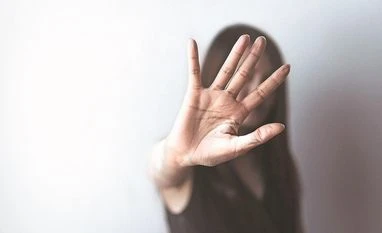Campaigners demanding the criminalisation of marital rape in India are gearing up for a pivotal decision from the Supreme Court next month, as frustration mounts over its exclusion from the new criminal laws set to take effect on July 1, reported The Guradian.
Human rights groups, led by the All India Democratic Women’s Association, have been pressing the Supreme Court to classify marital rape as a criminal offence. The court, in response, has summoned the government to justify its stance.
The impending overhaul of India’s colonial-era penal code, dating back to the 19th century, marks a significant legal transition. Union Home Minister Amit Shah, who promised comprehensive reforms last year, criticised the existing legal framework as outdated, rooted in Victorian morality that lingered on issues like homosexuality until recent reforms in 2018.
The proposed changes include groundbreaking provisions such as criminalising sex under false promises of marriage and refining the definition of ‘consent’. However, amidst these strides, the new laws maintain a controversial exemption: sexual acts between spouses, where the wife is above 18 years old, will not be classified as rape.
Ntasha Bhardwaj, a prominent gender scholar, condemned this exception as regressive, arguing that it defies constitutional principles safeguarding women from violence and ensuring their equality.
“Not making marital rape a crime is nothing but Victorian thinking. It grants a man unlimited access to his wife’s body after marriage,” she said, highlighting the disparity between progressive ideals and the government’s perceived appeasement of conservative voters.
The debate echoes recent legal battles over same-sex marriage, where the Supreme Court deferred to Parliament citing societal conservatism. Bhardwaj drew parallels to past reforms, questioning why practices like dowries and child marriages, once deeply rooted in tradition, were successfully outlawed despite similar cultural resistance.
More From This Section
Meanwhile, challenges persist within the new laws, including discrepancies in sentencing for marital rape compared to other rape cases. Shilpi Singh of Bhoomika Vihar, a women’s rights organisation, also echoed similar sentiments, highlighting the urgent need for legal protection.
“We believe in ‘my body, my rights’. After marriage, a man cannot take sex with his wife for granted. Without a new law, women will just face sexual exploitation,” she was quoted as saying by The Guardian.
Criticism has also come from within the government’s own rhetoric. Prime Minister Narendra Modi’s calls for women’s empowerment and leadership clash with provisions allowing unrestricted marital access, a contradiction that Bhardwaj finds perplexing given the government’s avowed commitment to ‘nari shakti’.
“It’s bizarre. The view of marriage that gives a man unlimited access to his wife’s body undercuts their empowerment. It contradicts the government’s slogan of ‘nari shakti’, or ‘woman power’, that it keeps invoking,” she said.
)